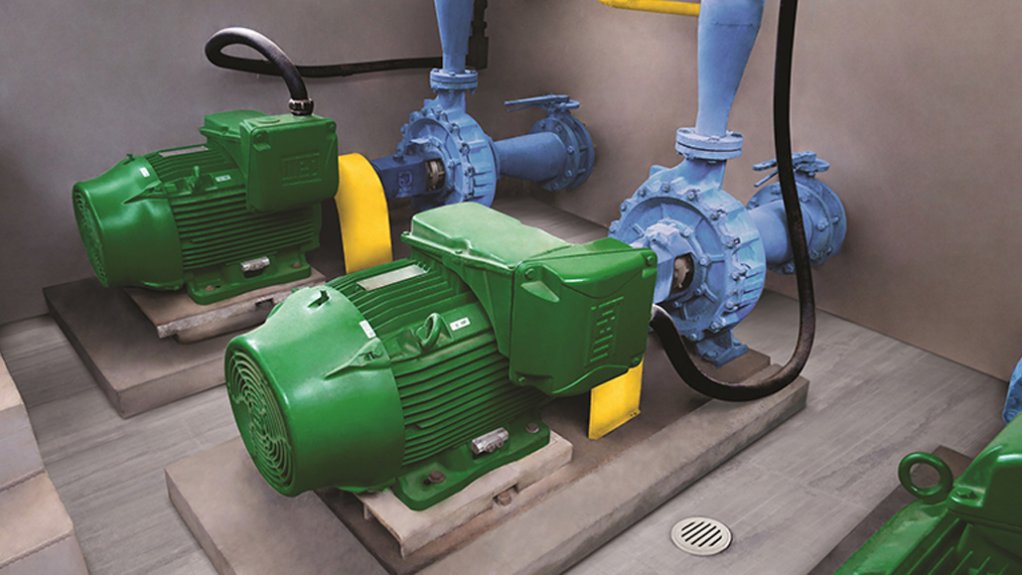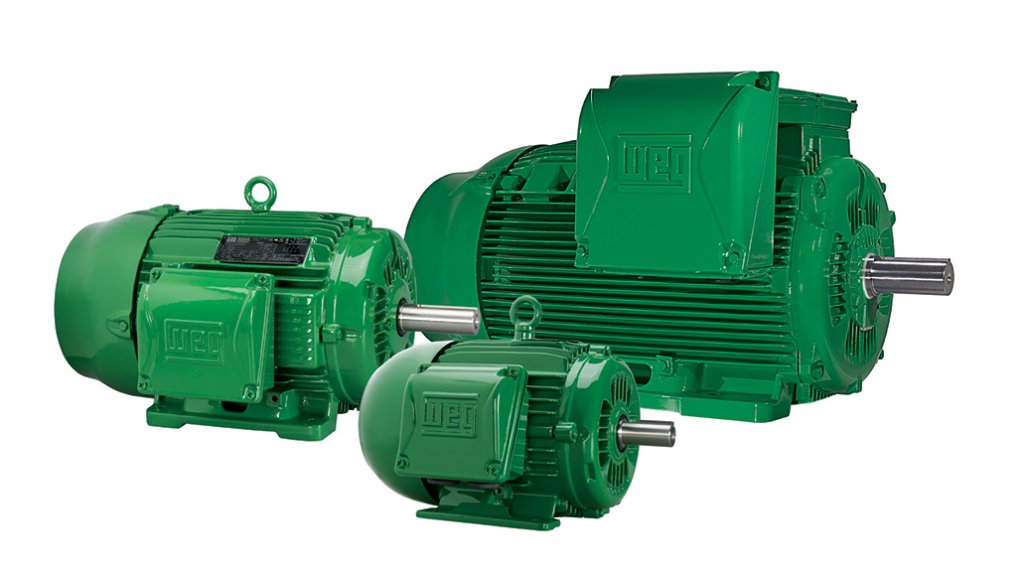

Firm hails efficiency plan’s stance on electric motors



LOWER HEAT LOSSES Better efficiency lowers the heat losses that gradually degrade the insulation on the copper windings, as with more heat within the motor, the more the insulation will deteriorate. High efficiency motors will reduce this heat build-up
Photo by WEG Africa
DEDICATED ASSEMBLY LINES To promote the use of and facilitate easy access to IE3 motors, WEG Africa has established dedicated assembly lines for these units at its Johannesburg facility
Photo by WEG Africa
The plan to apply the Minimum Energy Performance Standards (MEPS) for low-voltage electric motors in South Africa has been hailed by solutions provider WEG Africa as an exciting step toward energy efficiency and a lower carbon future for the industry.
The Department of Trade, Industry and Competition recently announced its intention to put a stop to imports of low- efficiency motors – in the power rating range from 0.75 kW to 375 kW – in favour of motors in the efficiency class of IE3 and above.
“This is an important step in addressing South Africa’s energy poverty, while at the same time facilitating significant power cost savings for industry and reducing companies’ carbon footprint,” states WEG Africa electric motors manager Fanie Steyn.
He highlights that WEG Africa has for many years championed the benefits of high-efficiency motors. Once the MEPS is applied, he says, the country could save around 840 GWh a year, as about 60% of power consumed by industry is through the use of electric motors.
He emphasises that MEPS would not affect those motors already installed or held in stock by original-equipment manufacturers and distributors; it would only be applied at the point of imports.
“The MEPS makes complete sense for the economy and the environment. We have been encouraging customers to take advantage of IE3 technology as its financial benefit is so clear and immediate; many customers have a strong sustainability agenda that this shift also supports,” Steyn comments.
According to global research, about 97% of the total cost of owning and operating an electric motor comes from the electricity it consumes. Its purchase price makes up about 2.3% of its cost to the owner, while maintenance costs add up to only 1% on average.
“The saving on energy costs with an IE3 motor means that its payback period is as little as nine or ten months.”
However, despite the “compelling economic rationale” for transitioning to IE3 motors, “most motors in South Africa – perhaps 80% – are not energy efficient”, explains Steyn.
To promote the use of and facilitate easy access to IE3 motors, WEG Africa established dedicated assembly lines for these units at its Johannesburg facility. With the MEPS expected to be finalised and enforced in early 2024, this facility will assist in meeting rapid demand growth that will result.
Another important aspect of the shift towards higher efficiency in motors is that this technology will also extend the lifecycle of motors.
“Better efficiency means lower heat losses, and it is the heat of a motor that gradually degrades the insulation on the copper windings. The more heat in a motor, the more the insulation will deteriorate – and high- efficiency motors reduce this heat build-up considerably,” elaborates Steyn.
He points out that other African countries such as Ghana and Mozambique are also looking at the application of MEPS within their boundaries. While low-efficiency motors will still be sold into Africa in the near future, the trend is towards a more regulated environment to reduce unnecessary levels of energy consumption.




